In the unfortunate event of a fire, understanding the process of filing an insurance claim can be daunting. This guide provides ten essential tips to help you navigate the process smoothly and efficiently, ensuring you receive fair compensation for your losses.
Fire insurance claims can be complex, involving documentation, communication, and negotiation. However, by following these practical tips, you can increase your chances of a successful claim and minimize stress during this challenging time.
Overview of Fire Insurance Claims
Fire insurance claims are an integral part of fire insurance policies, providing a financial safety net for policyholders in the unfortunate event of a fire-related loss.
The purpose of fire insurance claims is to compensate policyholders for the financial losses incurred as a result of fire damage. This includes not only the direct costs of repairing or replacing damaged property, but also additional expenses such as temporary living arrangements and loss of business income.
Common Scenarios for Fire Insurance Claims
Fire insurance claims can arise from a variety of scenarios, including:
- Accidental fires: These are fires that occur due to negligence or unforeseen circumstances, such as electrical faults, cooking accidents, or arson.
- Natural disasters: Fires caused by natural disasters, such as wildfires, lightning strikes, or volcanic eruptions, are also covered by fire insurance.
- Malicious acts: Fires intentionally set by a third party, such as vandalism or arson, are also covered under fire insurance policies.
Preparation Before Filing a Claim
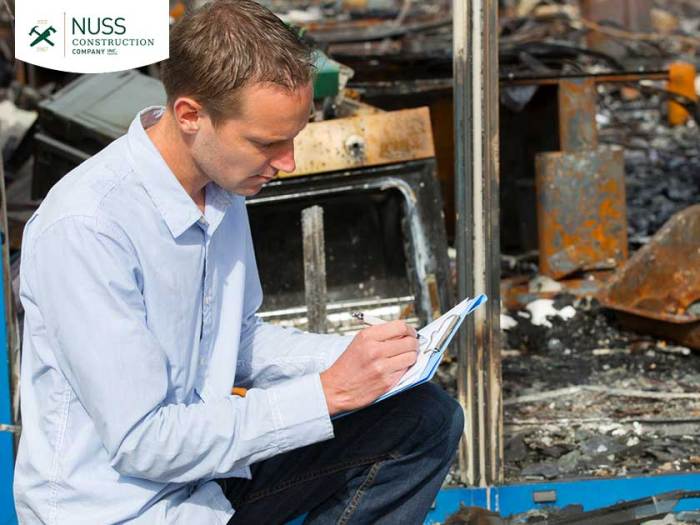
Preparation is key when filing a fire insurance claim. Having a comprehensive inventory of your belongings can make the process smoother and ensure you receive fair compensation for your losses.
Creating a detailed inventory of your belongings can be time-consuming, but it’s worth the effort. This inventory should include descriptions of each item, such as make, model, serial number, and purchase date. You should also include photos of each item and receipts or appraisals if you have them.
Documenting and Valuing Damaged or Lost Items
Once you’ve created an inventory of your belongings, you need to document and value the items that were damaged or lost in the fire. This can be done by taking photos and videos of the damage and by obtaining estimates from contractors or appraisers.
It’s important to be accurate when valuing your damaged or lost items. Don’t try to inflate the value of your belongings, as this could lead to your claim being denied. However, you should also be sure to include all of the costs associated with replacing or repairing your items, such as labor costs, taxes, and shipping.
Taking Photos and Videos of the Fire Damage
Photos and videos can be valuable documentation when filing a fire insurance claim. They can help the insurance company to see the extent of the damage and to assess the value of your losses.
When taking photos and videos, be sure to focus on the damage to your property. Take close-up photos of any damaged items and wide-angle photos that show the overall extent of the damage.
Filing the Claim
Filing a fire insurance claim can be a daunting task, but by following a step-by-step guide and providing the necessary information, you can make the process smoother.The first step is to contact your insurance company as soon as possible after the fire.
They will provide you with a claim form and instructions on how to proceed. You will need to provide detailed information about the fire, including the date, time, and location, as well as the cause of the fire if known.
You will also need to provide information about the damage to your property, including photographs and estimates for repairs.Once you have completed the claim form and gathered the necessary supporting documents, you can submit your claim to your insurance company.
You can do this by mail, email, or in person at their office. Your insurance company will review your claim and may request additional information or documentation. Once they have all the necessary information, they will make a decision on your claim and issue payment.
Submitting the Claim Form and Supporting Documents
When submitting your claim form and supporting documents, it is important to be organized and thorough. Make sure that you have completed all of the required fields on the claim form and that you have attached all of the necessary supporting documents.
You should also keep copies of all of the documents that you submit.
Documenting the Fire Damage
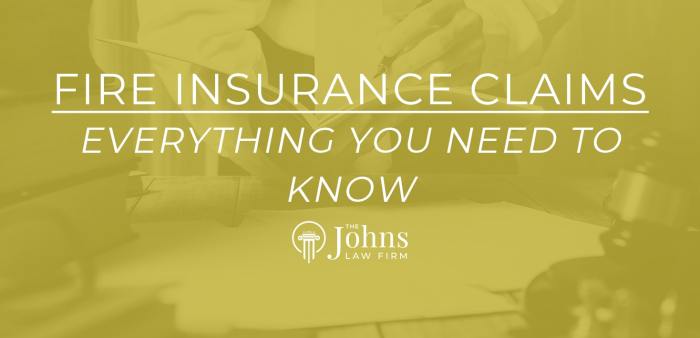
Thoroughly documenting the fire damage to your property is crucial for a successful insurance claim. Here’s how to effectively capture the details:
Taking Photographs
- Take comprehensive photographs of the fire damage, both inside and outside your property.
- Capture wide-angle shots to show the extent of the damage and close-ups to document specific areas.
- Ensure photos are clear and well-lit, using a camera or smartphone with high resolution.
Creating a Detailed Inventory
- Make a detailed list of all damaged or destroyed items, including furniture, appliances, clothing, and electronics.
- Provide a description of each item, including brand, model, and serial number if applicable.
- Include receipts or invoices for items purchased within the last few years to support your claim.
Preserving Evidence
- Avoid cleaning up the fire damage until after the insurance adjuster has inspected the property.
- Keep all damaged items in place, as they may provide valuable evidence for the insurance company.
- If items must be moved, take photographs of their original location before moving them.
Keeping Receipts and Invoices
- Retain all receipts and invoices related to fire-related expenses, such as repairs, temporary housing, and cleaning services.
- These documents will be necessary to support your claim and demonstrate the extent of your financial loss.
- Keep receipts organized and easily accessible for submission to the insurance company.
Creating a Timeline of Events
- Create a detailed timeline of events leading up to and after the fire, including the date and time of the fire, the cause of the fire (if known), and the actions taken to address the damage.
- This timeline will help the insurance company understand the circumstances surrounding the fire and the extent of the loss.
- Include any relevant documentation, such as police reports, fire department reports, or witness statements, to support your timeline.
Communicating with the Insurance Company
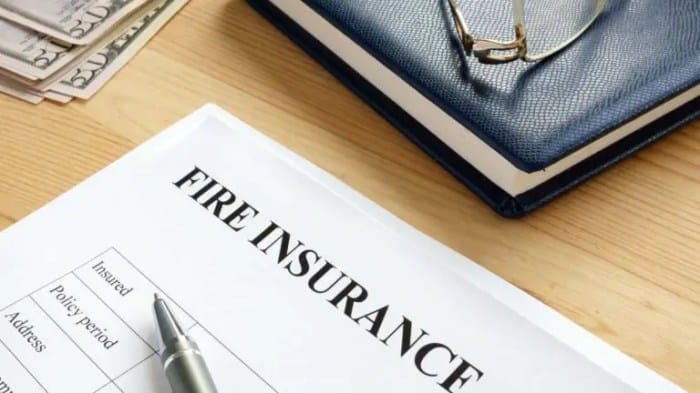
Effective communication with your insurance company is vital to ensure a smooth and successful claims process. Maintaining a responsive, professional, and respectful demeanor is crucial to building a positive relationship with the insurance representatives handling your claim.
When filing a fire insurance claim, you will be required to communicate with your insurance company’s representatives. Here are some tips for communicating effectively:
Being Responsive
- Respond promptly to requests for additional information or documentation. Delays in responding can prolong the claims process and may lead to complications.
- Be prepared to provide any relevant information or documentation that the insurance company may request, such as police reports, fire department reports, receipts, or photographs of the damage.
- Keep track of all communications with the insurance company, including emails, phone calls, and letters. This will help you stay organized and ensure that you have a record of all interactions.
Maintaining Professionalism
- Maintain a professional and respectful demeanor when interacting with insurance representatives. Avoid being confrontational or argumentative, even if you are frustrated or disagree with the company’s decision.
- Be clear and concise in your communication, avoiding jargon or technical terms that the insurance representative may not understand.
- Be patient and understanding, as the claims process can be lengthy and complex. Remember that the insurance representative is there to help you, and they are working within the company’s policies and procedures.
Negotiating the Settlement
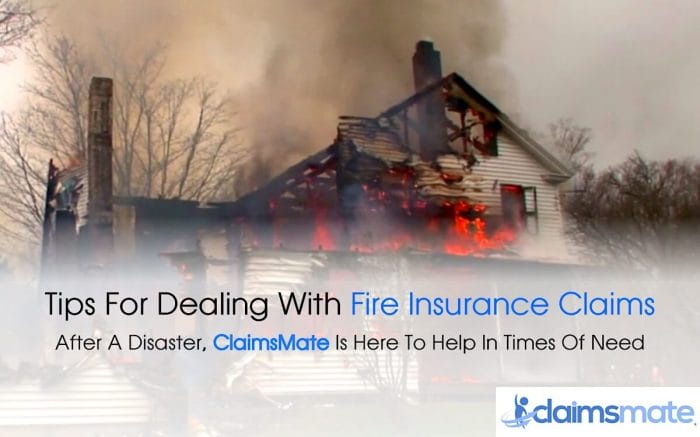
Negotiating the settlement amount with the insurance company is a crucial step in the fire insurance claim process. This involves discussing and reaching an agreement on the compensation you’ll receive for the damages incurred due to the fire.To negotiate effectively, it’s essential to understand your rights and responsibilities as a policyholder, as well as the terms and conditions of your insurance policy.
Additionally, gathering relevant evidence and documentation to support your claim is key.
Strategies for Negotiating a Fair Settlement
1. Be Informed and Prepared
Before initiating negotiations, thoroughly review your insurance policy, including the coverage limits and exclusions. Additionally, gather all relevant documentation, such as the police report, fire department report, and estimates from contractors.
2. Open Communication
Maintain open communication with your insurance company throughout the negotiation process. Be responsive to their inquiries and provide any additional information they may request.
3. Hire an Attorney (if Needed)
If the claim is complex or the insurance company is disputing the settlement amount, consider hiring an attorney who specializes in fire insurance claims. They can provide legal advice and represent your interests during negotiations.
4. Negotiate Based on Evidence
During negotiations, focus on presenting evidence that supports your claim. This may include estimates from contractors, receipts for repairs or replacements, and photos of the fire damage.
5. Be Reasonable and Flexible
While it’s important to advocate for a fair settlement, be willing to negotiate and find a compromise that works for both parties. Flexibility can help expedite the settlement process and avoid prolonged disputes.
6. Consider Mediation or Arbitration
If negotiations reach an impasse, consider alternative dispute resolution methods such as mediation or arbitration. These processes involve a neutral third party who helps facilitate communication and resolution between the parties.
Understanding Policy Coverage

Grasping the nuances of your fire insurance policy is paramount in ensuring a seamless claims process. Your policy Artikels the coverage provided, policy limits, deductibles, and exclusions, all of which impact the extent of your claim settlement.
To navigate your policy effectively, consider the following tips:
Policy Limits:
- Understand the maximum amount your insurer will pay for a covered loss.
- Be aware that policy limits may vary for different types of losses and properties.
Deductibles:
- Familiarize yourself with the deductible amount you must pay before the insurance coverage kicks in.
- Higher deductibles often result in lower premiums, and vice versa.
Exclusions:
- Review the exclusions carefully to understand what losses are not covered under your policy.
- Common exclusions include losses due to earthquakes, floods, and acts of war.
Key Provisions:
- Identify the section of your policy that Artikels the claims process, including deadlines and documentation requirements.
- Locate the section that explains how the settlement amount will be determined.
Preventing Insurance Claim Denials

Filing a fire insurance claim can be a stressful and time-consuming process, and the last thing you want is to have your claim denied. There are a number of common reasons why fire insurance claims are denied, but by being aware of these reasons and taking steps to avoid them, you can increase your chances of having your claim approved.
Common Reasons for Fire Insurance Claim Denials
There are a number of reasons why fire insurance claims may be denied, including:
- Policy Exclusions: Most fire insurance policies contain exclusions for certain types of losses, such as those caused by arson, war, or natural disasters. If your loss is excluded from coverage, your claim will likely be denied.
- Misrepresentation or Fraud: If you misrepresent or omit material facts on your insurance application or claim form, your claim may be denied. For example, if you fail to disclose a previous fire loss or if you exaggerate the amount of your damages, your claim may be denied.
- Lack of Evidence: If you do not have adequate evidence to support your claim, your claim may be denied. This includes evidence of the cause of the fire, the extent of the damage, and the value of your losses.
- Late Filing: Most fire insurance policies have a time limit for filing claims. If you file your claim after the deadline, your claim may be denied.
Tips for Avoiding Mistakes that Could Lead to Claim Denials
There are a number of things you can do to avoid making mistakes that could lead to a claim denial, including:
- Read Your Policy Carefully: Before you file a claim, read your policy carefully to understand what is and is not covered. This will help you avoid filing a claim for a loss that is excluded from coverage.
- Be Honest and Transparent: When you file a claim, be honest and transparent with your insurance company. Provide them with all the information they need to process your claim, including the cause of the fire, the extent of the damage, and the value of your losses.
- Keep Good Records: Keep good records of your property, including receipts for purchases and repairs. This will help you prove the value of your losses if you need to file a claim.
- File Your Claim Promptly: File your claim promptly after the fire. Most fire insurance policies have a time limit for filing claims, so it is important to file your claim as soon as possible.
The Importance of Being Honest and Transparent When Filing a Claim
It is important to be honest and transparent when filing a fire insurance claim. If you misrepresent or omit material facts, your claim may be denied. In addition, being honest and transparent will help you build a strong relationship with your insurance company, which can make the claims process go more smoothly.
Hiring a Public Adjuster
When dealing with a fire insurance claim, you might benefit from the services of a public adjuster. These professionals specialize in helping policyholders navigate the complexities of the claims process and maximize their settlements.
Benefits of Hiring a Public Adjuster
Public adjusters offer numerous advantages to policyholders, including:
- Expertise and Experience: They possess extensive knowledge of insurance policies and claims procedures, enabling them to effectively advocate for your rights.
- Objectivity: Public adjusters work independently of insurance companies, ensuring they prioritize your best interests.
- Negotiation Skills: They are skilled negotiators who can effectively communicate with insurance companies on your behalf, often securing higher settlements.
- Claim Preparation Assistance: Public adjusters can assist in gathering the necessary documentation, estimating the value of your losses, and preparing a comprehensive claim.
- Representation During Inspections: They can accompany you during insurance company inspections, ensuring your interests are protected.
Selecting a Reputable Public Adjuster
Choosing the right public adjuster is crucial for a successful claim. Consider the following factors when making your selection:
- Experience: Look for an adjuster with a proven track record of handling fire insurance claims.
- Reputation: Seek recommendations from friends, family, or industry professionals who have worked with public adjusters.
- Fees: Public adjusters typically charge a percentage of the settlement amount, so it’s important to compare fees and ensure they are reasonable.
- Communication: Choose an adjuster who is responsive, transparent, and willing to keep you informed throughout the claims process.
- Licensing: Ensure the public adjuster is licensed in your state and has the necessary qualifications.
Recovering from a Fire

Coping with the aftermath of a fire can be emotionally and financially challenging. This section offers guidance on navigating the recovery process, emphasizing the importance of seeking support and utilizing available resources to rebuild and move forward.A fire can cause significant emotional distress, including feelings of loss, grief, and uncertainty.
It’s essential to acknowledge and process these emotions by allowing yourself time to grieve and seeking support from family, friends, and professionals. Counseling, support groups, and online resources can provide a safe space to express and work through these emotions.
Practical Steps for Recovery
[detailed content here]
- Contact your insurance company promptly to initiate the claims process and ensure a smooth settlement.
- Prioritize safety and health by assessing the structural integrity of your property, addressing any immediate hazards, and ensuring proper ventilation to prevent health risks.
- Document the damage thoroughly by taking photographs and videos of the affected areas, retaining receipts for expenses incurred during the recovery process, and keeping a detailed inventory of lost or damaged items.
- Collaborate with contractors and professionals to assess the extent of damage, plan necessary repairs or renovations, and obtain estimates for the work required.
- Consider seeking legal advice if there are disputes or complications during the claims process or if you feel your insurance company is not handling the claim fairly.
Closing Summary
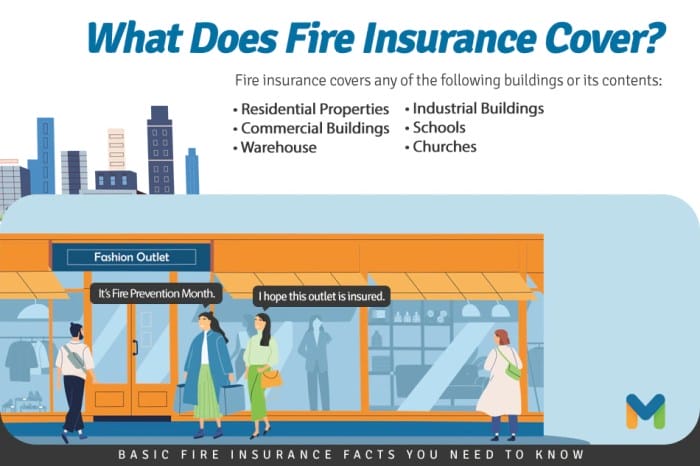
Filing a fire insurance claim can be a daunting task, but by following these ten tips, you can increase your chances of a successful claim and minimize stress during this challenging time. Remember to document everything, communicate effectively with your insurance company, and understand your policy coverage.
If you have any doubts or complexities, consider hiring a reputable public adjuster to assist you.
Frequently Asked Questions
Question: What is the most important step in filing a fire insurance claim?
Answer: Thoroughly documenting the fire damage, including photos, videos, receipts, and a detailed timeline of events, is crucial for a successful claim.
Question: How can I negotiate a fair settlement with the insurance company?
Answer: Research comparable market values for damaged or lost items, be prepared to provide supporting documentation, and maintain a professional and respectful demeanor during negotiations.
Question: What are some common reasons for fire insurance claim denials?
Answer: Common reasons include policy exclusions, failure to provide adequate documentation, misrepresentation of facts, and late claim filing.
Question: When should I consider hiring a public adjuster?
Answer: Consider hiring a public adjuster if the fire damage is extensive, the insurance company is disputing your claim, or you need assistance navigating the claims process.



